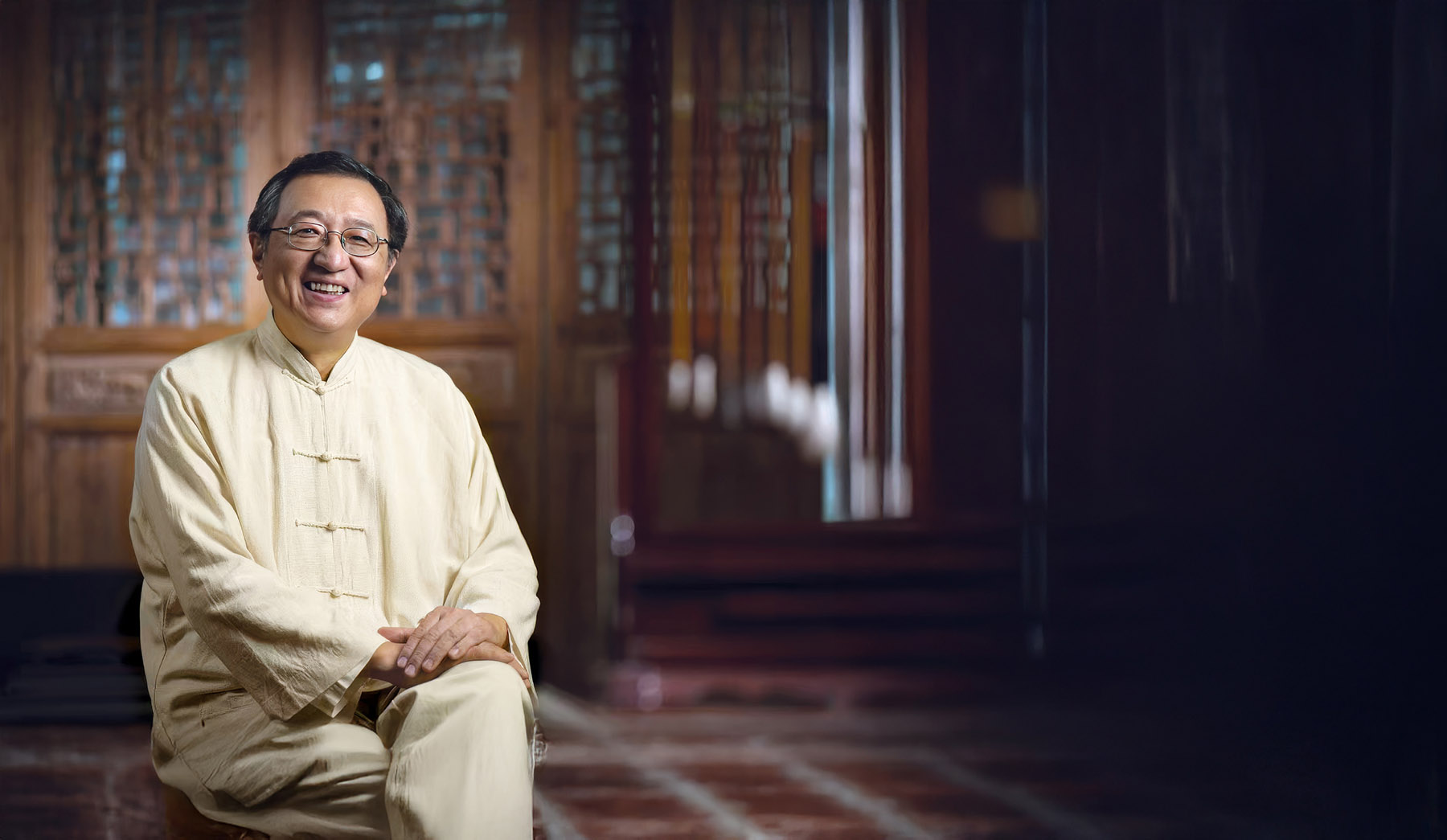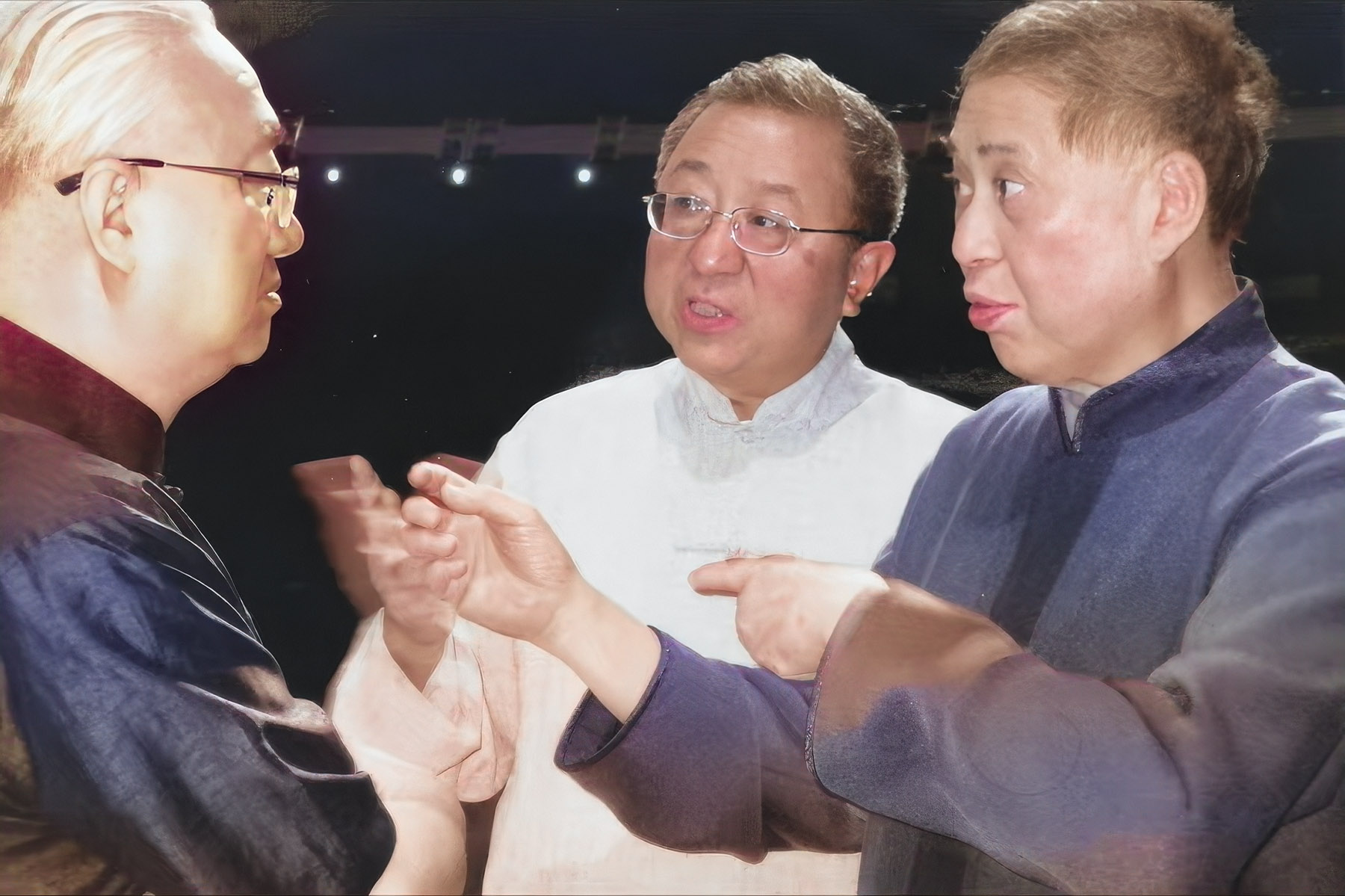Hong Kong has a duty to make its younger generation more aware of their roots, and better understand time-honored Chinese culture in line with the city’s reputation as an East-meets-West exchange hub. Luo Weiteng reports from Hong Kong.

A thousand years ago, Zhang Zai — a great thinker and educator of the Northern Song Dynasty (960-1127) — set in motion the grand pursuit and noble ambition of Chinese intellectuals through the ages — “ordaining conscience for heaven and earth; securing life and fortune for the people; continuing lost teachings for past sages; and establishing peace for all future generations”.
The famous quote, widely known as the “Four Sentences of Heng Qu”, has been passed down through the generations as one of the greatest totems honoring China’s magnificent traditional culture.
Such a lofty goal, however, is a critically missing piece in Hong Kong’s youth education puzzle, with too many lessons to learn from the nation’s past, present and future to make up, says Cheng Pei-kai, chairman of the Hong Kong branch of the Chinese Folk Literature and Art Association.
It also points the way to the future for the city to become a genuinely earnest promoter of China’s time-honored cultures and traditions, as well as a cultural exchange hub of global significance, he tells China Daily.
READ MORE: GBA to play vital role in promoting Chinese culture and fostering unity
For years, Hong Kong’s long-cherished status as a city with the best of both worlds has been very much on everyone’s lips, making it a natural fit for an East-meets-West center for international cultural exchange.
The much-coveted title, outlined in the 14th Five-Year Plan (2021-25) and thrust into the limelight in Hong Kong’s 2021 Policy Address and beyond, has far-reaching significance for the sustainable development of the country’s long-lasting culture and history that many are yet to fully realize, says Cheng.
Having seen no shortage of people who see it as merely a mission assigned by the central government that Hong Kong needs to carry out diligently, Cheng believes “a civil servant’s mentality of doing whatever instructed from above”, while not wrong, could hardly take the city’s zestful role in cultural exchange that far.
Behind the metropolis’ uneven melding of Eastern and Western influences, he says Hong Kong must go the extra mile to enhance its limited recognition and nurture deeper appreciation of Chinese culture — a weak link in the multicultural city’s undertakings.
“Without a better understanding of where the nation came from and what it has achieved, integration is no more than empty talk, let alone giving full play to the world city’s impeccable strength as a cultural melting pot over the past century,” says Cheng, who chaired Hong Kong’s Intangible Cultural Heritage Advisory Committee from 2017 to 2020.
A dazzling array of initiatives, including the creation of the Chinese Culture Promotion Office in March and the inaugural Chinese Culture Festival held from June to September — an expansion of the city’s signature event, the Chinese Opera Festival that concluded its 12th edition this year — has “set Hong Kong in the right direction”.
On top of the long-term initiatives that cannot be implemented immediately, the education sector should rethink how to integrate the essence of both cultures and impart something enduring rather than cater to the profit-chasing ethos of society, Cheng reckons.
“In a broader sense, education is all about inspiring young people to pursue meaningful goals and cultivate them along with lifelong aspirations,” he stresses. “This is what shines the long overdue spotlight on the best of China’s fine traditional culture.”
Even since Hong Kong’s reunification with the motherland, Chinese history teaching has still been pushed into the back seat in the name of “internationalizing” its education — an approach that Cheng describes as “short-termism” to get the special administrative region closer to global communities.
In his view, the so-called global push has often been confined to Anglo-American culture and language, with little care for the SAR’s native roots, making the city a “blind follower known for a peculiar lack of cultural confidence”.
Armed with a pure commitment to giving profound and extensive Chinese culture resonance and reach among young people, Cheng moved to Hong Kong in 1998, setting up the Chinese Civilisation Centre at City University of Hong Kong and becoming its founding director.

Quest for identity
Cheng still remembers being shocked by the findings of a survey on students’ cultural identity and belonging at that time. “We found some 12 percent of the surveyed students firmly believed they had no connection to Chinese culture, and another 12 percent considered themselves unequivocally British. With limited English proficiency and poor knowledge of British history and literature, how come these students identified themselves as British?”
Such a mindset, however, found its roots in a belief of the times when young people were brought up thinking that Anglo-American culture was a world beater.
This underscores the good efforts Cheng has made in helping young generations to understand that Chinese culture, cherished and practiced by Hong Kong people in bits and pieces of daily life, and age-old traditions and customs, has its ups and downs, ebb and flow, peaks and valleys.
“The vastness and complexity of history makes it an ongoing journey of discovery and calls for lifelong commitment to exploring and appreciating the rich tapestry of our past,” he says.
What has been put on top of his teaching agenda was “the most serious problem” that the youth hadn’t the slightest idea about the indigenous cultural elements they were carrying and embodied. He adopted a “spontaneous approach” that encouraged students to build a deeper connection to the richness of Chinese culture from everyday experiences, encompassing everything from Buddhist and Taoist temples, myriad festivals and celebrations to household tales, and collections of xiqu, or Chinese opera, performances.
A couple of years later, Cheng was gratified to see a good many students had opened their arms wider for meaningful engagement with Chinese culture in their quest to better understand what the future holds for themselves and the culture.
Such quest of self seems not in line with a social climate in those days that prioritized quick wins and instant benefits above all else. Cheng deems it “the most severe damage inflicted on Hong Kong by the colonial government”, where locals were discouraged from thinking about the road ahead for themselves and Chinese culture, or even reflecting on their identity as Chinese. Instead, financial gains and material success made the one and only overarching theme.
What adds an arguably fitting footnote to the materialistic values is a demeaning reputation Hong Kong has been struggling to ditch as a cultural desert populated by philistines who are only interested in making money.
Cheng believes the cultural desert stigma holds some truth as well as bias. Hong Kong, known for its powerful pull on global cultural exhibitions and shows, has seen no shortage of a feast of events. Yet, a lack of public engagement is where the problem lies — a frustrating phenomenon particularly evident more than 20 years ago.
“Unlike other cosmopolitan cities where the educated, white-collar upper middle-class usually developed hobbies like reading, music and arts, Hong Kong saw a tiny number of enthusiasts truly involved in cultural activities two decades ago,” he notes. “The city’s cultural scene harbors a wealth of hidden talents almost invisible to the general public, with local cultural activities limited to the realm of entertainment without much depth.”
He casts aside the long-held stereotype and calls for “greater self-awareness” to guard against the citywide upsurge in money worship, and prevent “the voice of culture from being entirely drowned out by the noise of making money”.

Age of change
At a time of uncertainty, chaos, complexity and ambiguity, the greater self-awareness rings particularly true. With a geopolitical storm as a harbinger of things to come, change in the international structure is being felt across every corner of the globe.
Such a sea change, Cheng points out, can trace its origins back to the past two to three centuries when the Western hegemony became a dominant force in shaping international politics, culture, and economics for much of the contemporary era.
The fading facade of the Western-led order manifests itself partly as a “cultural anxiety” among the broader West (invoked here as a roughly workable term referring to the United States, Europe and the Anglosphere). On the flip side, with a new world order in the making, regions originally outside the center of the West’s once-unshakeable hegemony are undergoing change on a scale unseen in a century.
Amid conflicts, power shifts and sharpening competition, the West is falling into a state of tunnel vision with its focus fixed on a zero-sum game and abandoning the ideal pursuit of a harmonious world, mutual respect and inclusiveness, which sits at the core of traditional Chinese culture. Cheng expects such a chaotic situation to persist for several decades.
ALSO READ: Key takeaways from GBA culture strength forum
Since the later period of the Qing Dynasty (1644-1911), China has been turning to the West for knowledge and learning to save the nation from being subjugated, and ensure its survival and rejuvenation. Cheng says the hard road of learning has left an indelible imprint on the country’s modern history, but stands as an episode of Chinese civilization that stretches back to antiquity as a great continuum with strong unity, rich diversity and unbroken development.
With thousands of years to forge ahead and carry forward our civilization, what holds the key is “an open and inclusive mind” to show due respect to our national culture and draw inspiration from others’ cultures for a shared future and a common stake of all humanity, says Cheng.
This underscores a mission of the times for Hong Kong that thrives on a sophisticated fusion of East and West to tell its own and the nation’s stories well to the world in flux.
Cheng hopes education could play its due role in endowing local young generations with spiritual enrichment, as vividly reflected in the “Four Sentences of Heng Qu”, to give them and the business-oriented city a firm footing amid global narratives of culture, history and development.
“At a critical historical juncture, our young people should have higher ideals for the continuity of Chinese culture and a sustainable, long-term path of our nation, rather than merely seeking personal benefits or material advance within the Anglo-American capitalist system, and resigning themselves to being its skilled workers.”
Education background
1981
John King Fairbank Postdoctoral Fellow at Harvard University
1980
Doctorate in Chinese Cultural History from Yale University
Career highlights
Current
Chairman of the Hong Kong branch of the Chinese Folk Literature and Art Association
Professor emeritus at City University of Hong Kong
Member of Our Hong Kong Foundation’s Academic Advisory Council and advisor to the foundation
2017-20
Chairman of Hong Kong’s Intangible Cultural Heritage Advisory Committee
2016
Awarded the Medal of Honour by the Hong Kong Special Administrative Region government
1998-2015
Founding director and professor of the Chinese Civilisation Centre at City University of Hong Kong
1991-95
Visiting professor at National Taiwan University and National Tsing Hua University
Contact the writer at sophialuo@chinadailyhk.com


